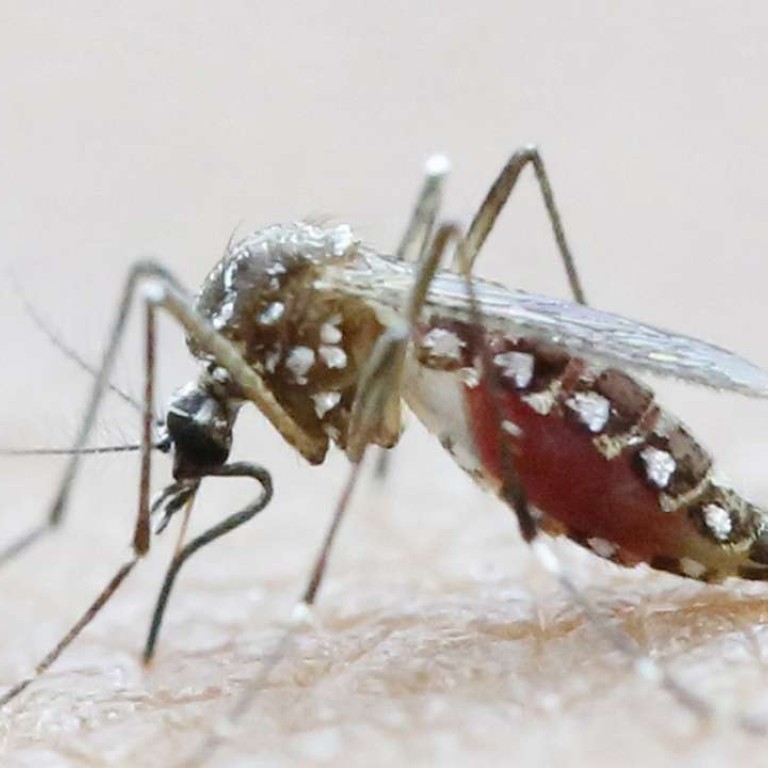
With onset of warm, wet weather, Hong Kong should be on guard against spread of Zika virus
City must take all precautions after experts confirm mosquito-borne virus can cause severe health problems, including birth defects
The return of favourable conditions for mosquito breeding brings public health reminders. They may be predictable, but two things set them apart this year. The expectation of a warmer and wetter spring than usual has prompted Centre for Health Protection controller Dr Leung Ting-hung to warn of more mosquito-borne diseases. The other difference is that one of them is likely to be the Zika virus.
The US Centres for Disease Control and Prevention (CDC) has just confirmed that the Zika virus causes severe birth defects, including microcephaly. It has already spread to more than 30 countries in Latin America and the Caribbean and the World Health Organisation has reported that people infected with the virus have travelled through Hong Kong.
The need to exercise caution is therefore not confined to travel to areas known to host Zika virus transmission. Nor is it confined to pregnant women or women preparing for pregnancy. The WHO cites scientific consensus based on a growing body of preliminary research that the Zika virus is also linked to neurological and autoimmune complications such as Guillain-Barre syndrome, a nerve condition that can causes paralysis. As well as the bite of an infected Aedes aegypti mosquito, the virus has been found in human semen, with transmission by sexual contact confirmed, and it can potentially be transmitted through blood transfusion.
All this greatly reinforces the case for guarding against mosquito bites. Indeed, the species that transmits the Zika virus is the same mosquito that transmits dengue fever. It is a question of when rather than if the virus is coming to Hong Kong and mainland China, according to Dr Alexander Kumar, a British doctor working on a project in Brazil to develop a diagnostic test for the virus.
Anne Schuchat, principal deputy director of the CDC says the virus “seems to be a bit scarier than we initially thought” and medical scientists say they urgently need to learn a lot more, including why the virus has flared up now with such devastating effects. It was first diagnosed in 1947 in Uganda, but symptoms have typically been mild, including rash, joint pain and fever. Meanwhile, Hongkongers should redouble efforts to follow precautions like eradicating mosquito breeding hazards such as stagnant water and protecting themselves with clothing and repellent when likely to be exposed to mosquitoes.

